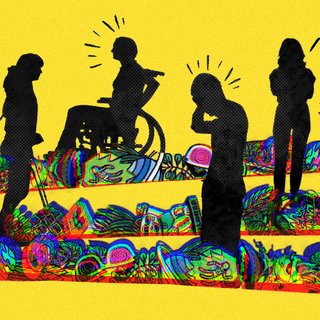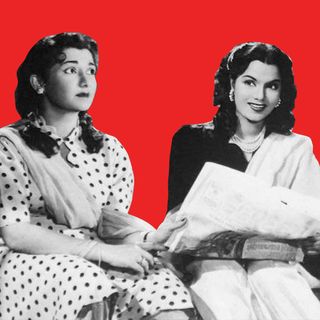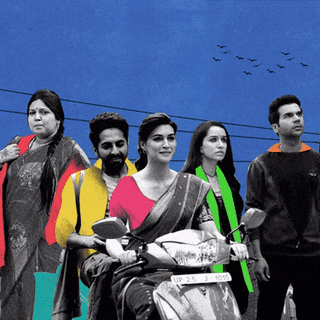This article contains spoilers for episode three of ‘The Last of Us.’
Episode 3 of HBO’s The Last of Us makes yet another diversion from the source material – but it’s one that fits within the context of the show’s narrative and, arguably, elevates it. Bill, a queer character notable for his bitterness, misanthropy, and isolation in the game, is fleshed out fully in this episode — more so than the video game. In giving Bill and Frank a dedicated episode, the TV adaptation deftly avoids — even subverts — the “bury your gays” pitfall that queer characters are often subject to in tragedies. It’s a trope that treats queer characters as more expendable than their straight counterparts — especially in narratives where they’re the minority — or as deserving of punishment for their queerness. This is the benefit of on-screen adaptations, which provide space and time for alternate perspectives to the overarching plot driven by the protagonists, Joel (Pedro Pascal) and Ellie (Bella Ramsey).
Bill (Nick Offerman) grows past merely being a gruff, standoffish doomsday prepper – a “survivalist”, in his own words – after meeting his husband Frank (Murray Bartlett), who shows him the value of care and beauty in life. Bill lives instead of simply surviving and finds purpose in protecting his husband. His skills and abilities, which fit traditional masculine standards of heroism, are not shown to be at odds with this sexuality. This is notable as Frank and Bill are shown to have met in 2007, when homosexuality was still largely stigmatized, but their orientations are never the defining point of their relationship. It’s the enduring nature of their love for each other, on the good days and the bad, that is notable.
This story, then, is the opposite of the “bury your gays” trope. Yes, Frank and Bill die at the end, but only after a long life together, one that was beautiful and flourishing despite bleak circumstances. Unlike the deaths afforded to many other tragic queer characters in stories, Bill’s and Frank’s deaths are triumphant – both choose to leave on their own terms, after the “perfect day” in bed with their husband.
Related on The Swaddle:
With Expiring Copyrights, Marginalized Communities Can Rewrite Fiction History
The “bury your gays” trope, which was created to punish queer characters by implying that the choices of gay characters are sin, and their deaths a plot consequence and warning to the audience, is admittedly a trap that the game falls into. In it, Frank leaves Bill and their safe haven, becomes infected and ultimately hangs himself, leaving only a note stating he “hated [Bill’s] guts.” Bill is left disheartened and, after Joel and Ellie depart, truly alone, becoming yet another cautionary tale on how love is a weakness. But the show inverts this narrative. When tasting fresh strawberries for the first time in over a decade, grown from Frank’s care and devotion, Bill says, “I was never afraid before you showed up.” This fear isn’t a weakness or a condemnation of abandoning rigid conformity to heteronormative masculinity. Instead, the fact that “there was one person worth saving” was what gave Bill his life’s purpose. He traded his gun for strawberries.
Bill and Frank, who thrived because of their choice to love and support one another, are shown as an example for what one can strive for in a desolate landscape – an example that Joel visibly takes to heart regarding Ellie, starting with helping with her seatbelt at the end of the episode. Frank had an impact on Bill, who then had an impact on Joel and, unknowingly, Ellie. The compassion that Frank taught him, which Bill originally saw as a weakness, became what cemented Joel’s purpose in protecting Ellie. Like Tess, Bill chose to provide hope for others in his dying moments. Love and its redemptive qualities lie at the core of The Last of Us, and the slogan when you’re lost in the darkness, look for the light is indicative of the enduring nature of the human spirit in the face of horrors.
Sometimes, our entire stories may just be footnotes in the larger narrative, but that doesn’t mean they’re worth any less – watching Bill and Frank and their previously overlooked love story on screen speaks to that.




